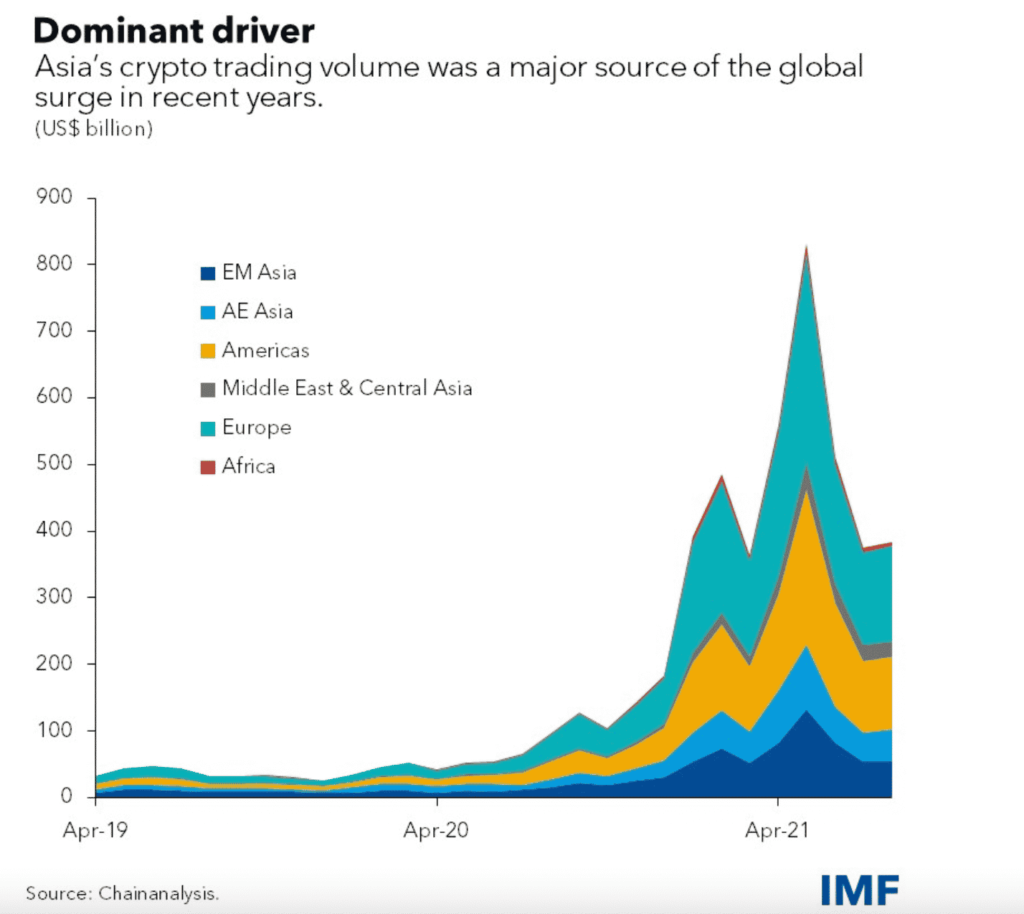Asia became a hotbed for cryptocurrency adoption following the 2020 COVID-19 pandemic.
In its latest report, the International Monetary Fund (IMF) found that the general cryptocurrency market and the Asian equities market now share a strong correlation that was non-existent before the pandemic.
A post-COVID crypto world?
Before the pandemic hit, the IMF found that concerns related to financial instability in Asia were minimal as the cryptocurrency market “seemed insulated from the financial system.”
However, when COVID-19 hit, Asia saw significant cryptocurrency trading activity as many stayed at home and received aid from the government.
Interest rates around the world were also lowered, which meant people could access credit facilities.
All of these drove the value of the total cryptocurrency market up by 20 times to $3 trillion in less than two years.
Additionally, the IMF found that the cascading impact of the pandemic in Asia led to a growing acceptance of crypto-related platforms and investment vehicles.
Furthermore, the adoption rate of cryptocurrency by retail and institutional investors in Asia who already had positions in the equity and crypto market before the pandemic grew significantly.
Asia, whose general impact in the crypto world went unnoticed pre-COVID, has now become a force to reckon with.
The reason for this is the cryptocurrency trading volume that came from the region became a major source of the global surge in the past few years.
Herein lies the correlation
According to IMF, as Asian investors increased their presence in the cryptocurrency market during the pandemic, the region’s equity markets and cryptocurrencies, including Bitcoin [BTC] and Ethereum [ETH], developed a stronger correlation in their performances.
In this regard, the United Nations agency noted,
“While the returns and volatility correlations between Bitcoin and Asian equity markets were low before the pandemic, these have increased significantly since 2020.”
Furthermore, the IMF found that the correlation between expected returns on Bitcoin investments and Indian stock markets “have increased by 10-fold over the pandemic.”
Well, this could be attributable to cryptocurrencies’ limited risk diversification benefits.
IMF also stated that volatility correlations between Bitcoin investments and the Indian stock markets have grown by three times its initial position.
According to the report, this could mean “possible spillovers of risk sentiment among the crypto and equity markets.”
This is not limited to just India. The crypto-equity volatility spillovers also exist in Vietnam and Thailand, showing the increasing correlation between both asset classes.
War against crypto
It’s here to be noted that the Indian government has taken a rather harsh approach to tax cryptocurrency activities in the country.
In March, the Indian parliament passed a controversial bill into law that levied a capital gains tax of 30% on cryptocurrency transactions in the country.
Since July, a 1% tax deducted at source (TDS) has been levied on every cryptocurrency transaction in the country.
According to data from Nomics, cryptocurrency trading volumes on Indian exchanges like WazirX have since dropped.





